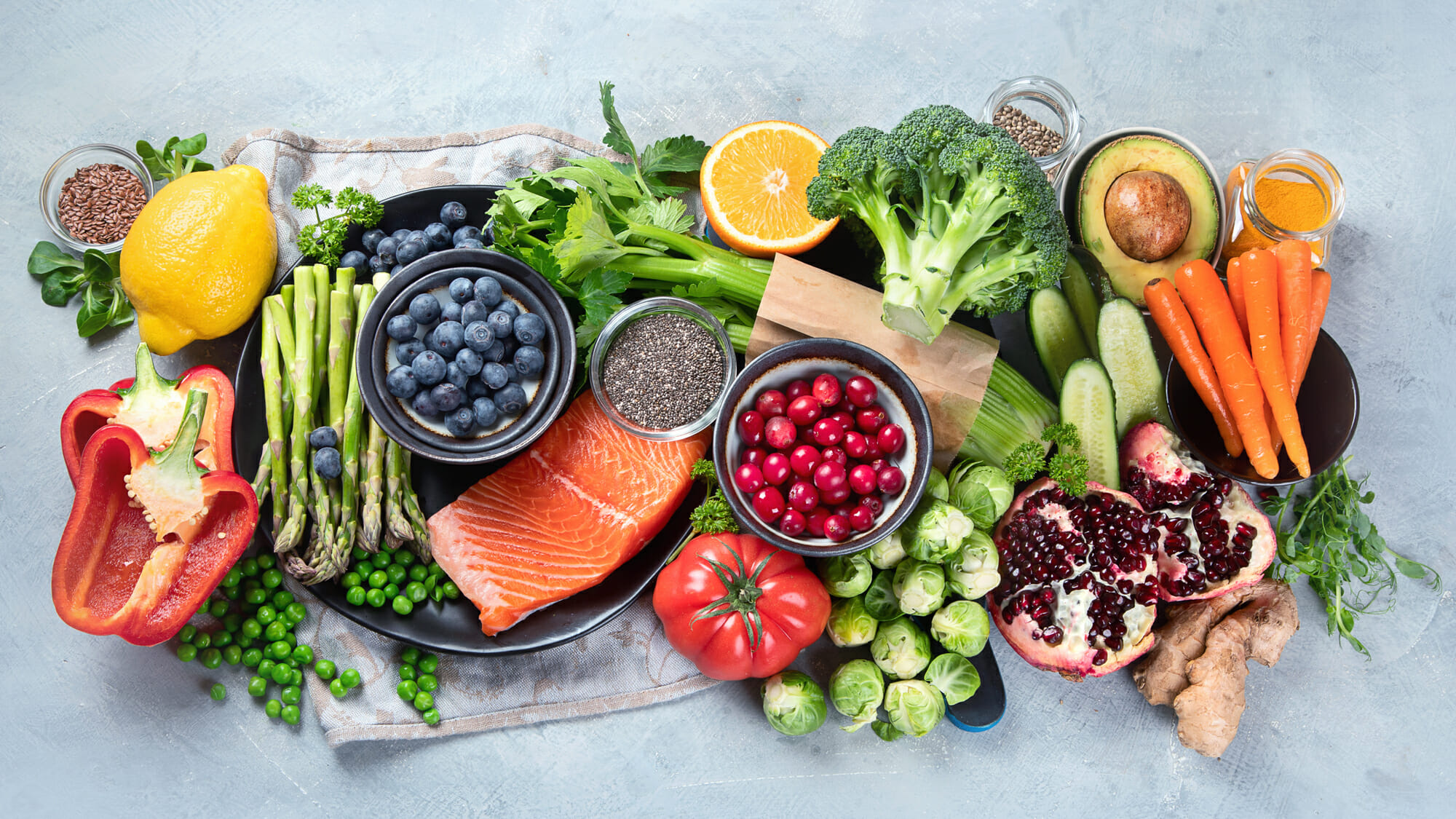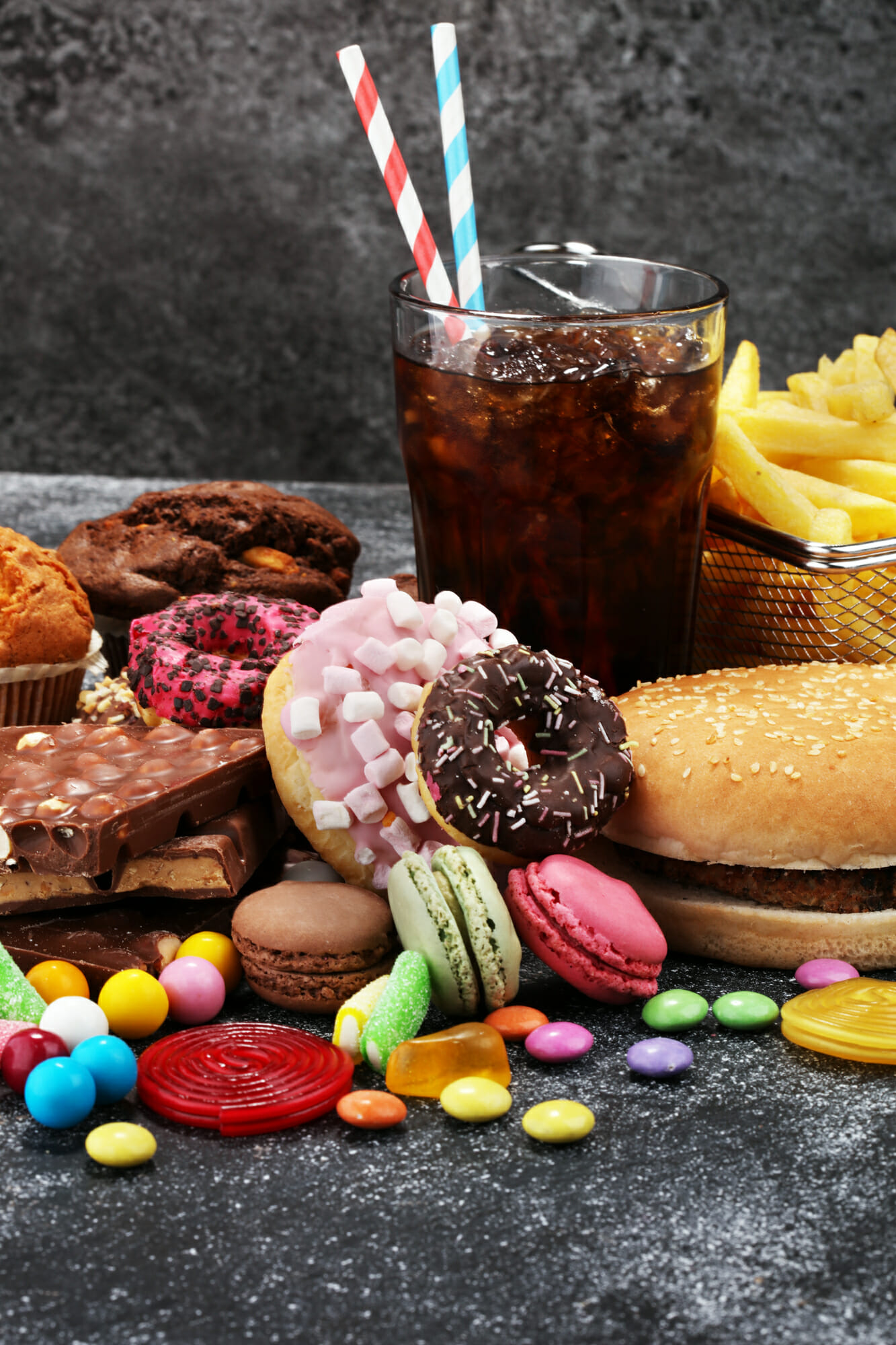Being on the road and with the holidays around the corner, our diet is a continuous focus of our attention. What we consume daily directly affects our body, brain, and mood, and can be adversely impact our mental health, such as our stress levels. Stress is not only triggered by external stressors; certain nutrients can cause stress. Which nutrients should be avoided, and which foods are helpful to maintain a healthy balance? This article explains which foods can cause moodiness, anxiety or stress and which nutrients can counteract these effects.

Causes of Stress
Stress can have various causes, such as urgent deadlines or high pressure at work. It is also possible that the situation at home is stress evoking. Taking care of a family member or significant other or feeling responsible for various aspects of homelife can significantly impact your stress levels. In every stage of life, there is a high probability that stress is part of one’s daily existence.
Frequent and excessive stress can negatively affect our body, mental health and lifestyle. We may experience feelings of exhaustion and overwhelmedness, decreasing the motivation to take care of ourselves. In this situation, healthier food options are easily traded for comfort food, food that does not need preparation or is heated up quickly by microwave. This is unfortunate because choosing healthy food does not necessarily have to be complicated. And during times of stress, it might be even more essential to take better care of yourself.
When under stress for a prolonged period, the body goes into a so-called survival mode, possibly leading to burnout. This survival-mode influences the production of certain substances in our body, including the stress hormone cortisol. The increased production of cortisol can be effective, for example, when a caution or warning message appears and needs fast reaction. However, the release of cortisol is less helpful when sitting in the crew room watching the news.
Foods to Avoid
There is an immense amount of information about foods that counteract stress, but it is essential to first look at the foods that aggravate stress. To reduce stress levels and lower the risk of burnout, learning how to relieve stress and avoid certain nutrients can help.
Sugar
Sugar is the first nutrient to avoid when looking for options to reduce stress levels. As mentioned, your body produces cortisol as a consequence of stress. Cortisol is a hormone that helps your body balance out stress levels. In addition, cortisol also works in regulating blood sugar levels. Because the blood sugar level in the body increases when you take in sugar, your body has to produce more cortisol to balance this out, which can lead to the following symptoms:
- Headaches
- Sleep problems
- Decreased immune response
- Feeling tired
- Craving unhealthy food
- Nervousness and anxiety caused by fluctuatingblood sugar levels
Tip: Eliminate foods with added sugars, such as soda, candy, and other sweet products.

Refined carbohydrates
Other foods to avoid are refined carbohydrates. These carbohydrates might be delicious but they are not great fuel for your body. Refined carbohydrates have no nutritional value and are therefore empty calories. Refined carbohydrates can be found in pasta, white bread, cookies, and other products with high amounts of sugar.
In the short term, refined carbohydrates give an energy boost, which causes the blood sugar level to rise within a short amount of time. In response, the body produces insulin to lower the sugar level again. Additionally, these foods are generally high in sodium, especially in the pre-packaged products. Besides creating thirst, sodium makes the body retain more fluid which makes the heart work harder. In addition, refined carbohydrates are also known for raising blood pressure, leaving you feeling bloated and generally unwell.
Alcohol
Although alcohol in moderation can have positive effects, excessive consumption is a major cause of more stress. A lot of alcohol every day has an anxiety-inducing impact. Consuming alcohol causes the production of hormones that lead to stress and anxiety. In addition, alcohol can cause higher blood pressure, faster heart rate, and other symptoms similar to stress.
Most alcoholic beverages contain a large amount of sugar, which has a double-negative effect owed to alcohol and sugar. Unfortunately, it is also a myth that alcohol can benefit sleep. In fact, alcohol negatively impacts sleep patterns. Though It may be easier to fall asleep, the quality of sleep is significantly lower. As a result, a higher probability is that one might feel less fit and moodier, which is a cause of more stress.
Caffeine in excess
Moderation is key. Drinking coffee is not necessarily bad, but it is important to be aware that while caffeine is a known component of coffee, it may also be present in other products you may consume regularly. For example, caffeine can also be found in various soft drinks, energy drinks, chocolate, and even tea (except for green tea).
Throughout the day, consuming a variety of products containing caffeine can significantly increase the chances of feeling stressed. Among other bodily reactions, caffeine stimulates the nervous system, which can cause a rise in blood pressure and heart rate. As a result, feelings of fear, restlessness, and anxiety eventually arise. Cutting out caffeine is an excellent first step when suffering from anxiety, depression, or symptoms of burnout.
Foods to Improve your Mood
Now that it is clear what nutrients to avoid, exploring foods that are effective at combatting stress is equally important.
Complex carbohydrates
Research shows that carbohydrates boost serotonin levels for a short time. Serotonin is a hormone known to improve mood and lower stress. When the body produces serotonin, it helps us to concentrate better under pressure. Keep in mind that these are unrefined carbohydrates. Examples of complex carbohydrates are sweet potatoes, fruits, vegetables, beans, whole grains, seeds, nuts, and kernels. These complex carbohydrates contain vitamins and minerals as well as fiber and require more time to digest. Adding these to daily meals help maintain a more balanced blood sugar level. Extra fiber can be added by introducing flaxseeds, green peas, almonds, berries, sesame seeds, and vegetables such as spinach and broccoli.
Omega-3
Omega-3 fatty acids are known for thier stress-reducing effects. In addition, they can decrease anxiety, improve concentration and your mood. For example, avocados are a great source of Omega-3. Omega-3 fatty acids are essential for our overall health. According to the National Institutes of Health, including 1.6g of alph-linolenic acid (ALA) for men and 1.1g ALA for women in a daily diet is recommended. ALA is one of the three main Omege-3 fatty acids
Omega-3 fatty acids are also found in various kinds of fish. Salmon, halibut, mackerel, sardines, and tuna are especially rich in Omega-3s, which have been proven to help with stress, depression, and/or burnout. If fish is not preferred, you can supplement your diet with options such as eggs, almond milk, walnuts, or chia seeds. In addition, Omega-3 supplements in the form of fish oil tablets are available. Keep in mind that there may be great differences in quality from one supplement to another and that few suppliments can rival the quality of that found in its food source.
Vitamin B
Vitamin B is also recommended in a daily diet and ensures a reduction in stress hormones. Most nuts, such as almonds, pistachios and walnuts are full of good nutrients, including vitamin B and healthy fatty acids. Additionally, they contribute to lowering blood pressure. This makes it an excellent snack while on the road! But again, moderation is key. Do not eat nuts in abundance. A handful a day will do.
Probiotics
Probiotics help with healthy intestinal hormones, which have been shown to help against depression, anxiety, burnout, and stress, Taking probiotics also helps support the immune system, protects against harmful bacteria and improves the absorption of nutrients. Aside from products such as fermented foods and yogurt, there are also supplements available.
Magnesium
Consuming enough magnesium through food and supplement in a daily diet can also help reduce stress. Magnesium can be found in fruits, green vegetables, raw cocoa, avocado, nuts, seeds, and kernels.
Final note
Changing your diet itself can be overwhelming and stressful. Awareness and recognizing what foods can positively and negatively impact your mental health are excellent first steps. Try not to make immense changes overnight. Small changes over time can make an essential and healthy difference. Here, a short shopping list is provided to help you get started!
Shopping list suggestions:
- Olive oil
- Good carbohydrates (Quinoa, whole wheat pasta, whole wheat rice)
- Oatmeal
- Seeds and kernels (pumpkin seeds, chia seeds, sunflower seeds)
- Dark chocolate (90% or higher)
- Tea (green and chamomile tea)
- Unsalted nuts (walnuts, pistachios, almonds)
- Fatty fish (salmon, sardines, tuna)
- Yogurt
- Sweet potatoes
- Berries
- Citrus fruits
- Avocados
- Green vegetables





















































































































